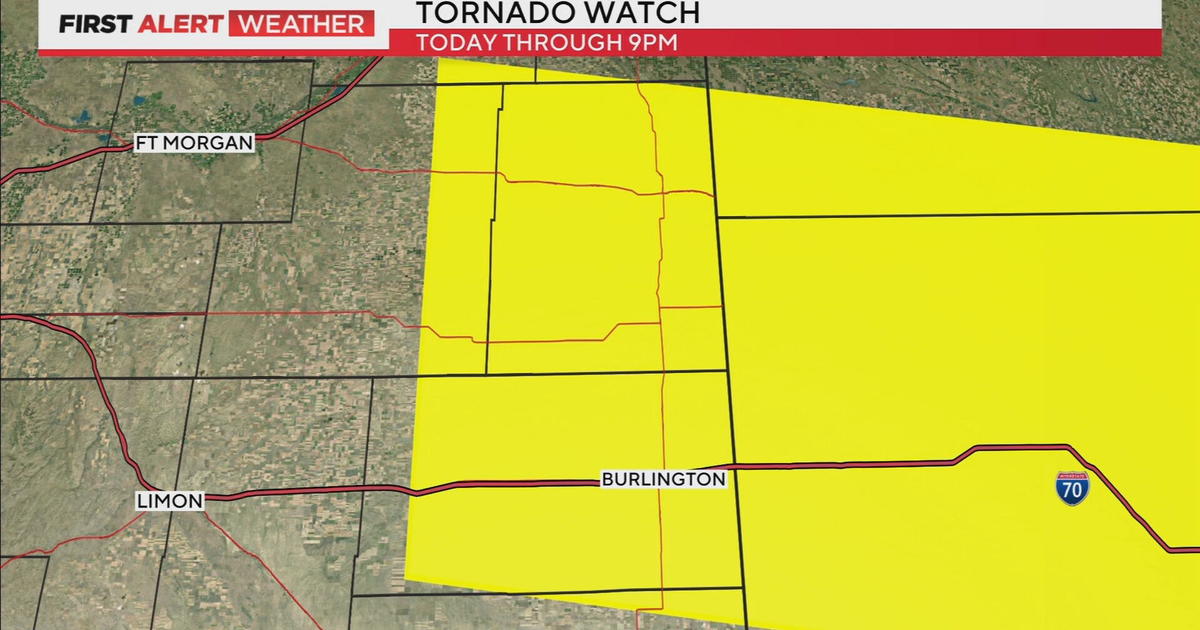Colorado Likely To Be Spared From Worst Defense Cuts
DENVER (AP) — Colorado will probably avoid the worst of the defense budget cutbacks in the post-Iraq, post-Afghanistan era because of the bustling military space operations in Colorado Springs and the Denver area.
The outlook for Fort Carson, the state's largest military installation, is less clear. The Army hasn't identified all the locations that will be affected as it cuts about 80,000 soldiers.
Few specifics about the Army's future have been released since the Pentagon announced last month that it would slow its spending growth and refocus on Asia, the Mideast and cyberspace.
Details that have been made public suggest three major commands in Colorado, along with an F-16 fighter jet squadron and a C-130 cargo plane squadron, will survive and in some cases thrive.
"I'm very optimistic from what I've seen and read," said Brian Binn, president of the Military Affairs Division of the Colorado Springs Chamber of Commerce. "If you looked at the priorities — space, cyberspace, homeland security, intelligence, reconnaissance ... all of them are key missions that we have up and down the Front Range."
The Pentagon says it will place a high priority on homeland security and on surveillance, communications and navigation satellites — missions that rely on the North American Aerospace Defense Command, U.S. Northern Command and Air Force Space Command, all based at Peterson Air Force Base in Colorado Springs.
The Aerospace Data Facility-Colorado, run by the secretive National Reconnaissance Office at Buckley Air Force Base in Aurora, is also a key military player in satellite surveillance.
The three commands and the NRO have at least 20,000 military and civilian employees combined in Colorado Springs and Aurora.
NORAD is responsible for defending the U.S. and Canadian skies. Northern Command is responsible for the military defense of U.S. soil and assisting civil authorities in emergencies.
Air Force Space Command's responsibilities range from launching military satellites to overseeing Air Force cyber-warfare and computer defense operations. In Colorado, Space Command units control dozens of military satellites.
Losses of some Colorado jobs seem likely. The Air Force says it will cut 9,900 active duty, Guard and Reserve personnel across the service.
The military's civilian workforce in Colorado has already taken a hit, with at least 475 job cuts announced or completed since November. Some positions were vacant and some employees were transferred to other positions.
Fort Carson, outside Colorado Springs, has about 25,500 active-duty military and more than 800 civilian employees. Its largest unit, the 4th Infantry Division, has four combat brigades of about 3,800 soldiers each.
The Defense Department said it plans to eliminate at least eight Army brigades, including two in Europe. Specifics will become clearer in coming weeks after President Barack Obama's budget proposal was released Monday.
Before the belt-tightening was announced, the Army chose Fort Carson to host a combat aviation brigade, which would bring 2,700 more soldiers plus about $730 million in construction over four years.
Binn said he believes the expansion is still in the works.
None of the nearly two dozen F-16s and 12 C-130s stationed in Colorado was among 500 Air Force aircraft targeted for retirement.
The F-16s, based at Buckley in Aurora, are flown by Colorado Air National Guard pilots and have often been called on by NORAD to track down and escort planes that violate restricted airspace or otherwise arouse suspicion.
The Buckley F-16s have been chosen for an aircraft-sharing arrangement that the Air Force sees as integral to getting the most out of its budget. The Colorado Air Guard squadron will be paired with an active-duty squadron, and both will use the same planes.
The Air Force has a similar arrangement in place at Peterson Air Force Base, home to an Air Force Reserve unit. The reserve unit has been sharing its C-130s with an active-duty unit since 2009.
The Peterson C-130 unit is one of four nationwide that stand as one of the last lines of defense in fighting wildfires. Fire managers can call on the C-130s if all the civilian and commercial air tankers are in use but more help is needed.
- By Dan Elliott, AP Writer
(© Copyright 2012 The Associated Press. All Rights Reserved. This material may not be published, broadcast, rewritten or redistributed.)



